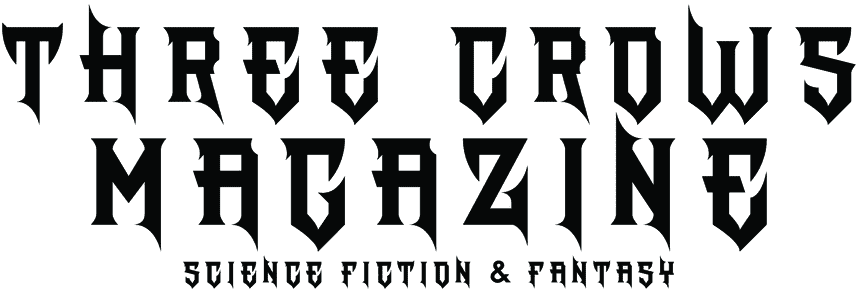Review: Rosewater by Tade Thompson
by Alex Khlopenko
Tade Thompson’s phenomenal novel “Rosewater” is beyond constraints of genre.
Some called Rosewater Afropunk, some called it cyber- or bio-punk, science-fiction, or even urban fantasy. But it feels beyond genre like Strugatsky’s “Roadside Picnic” or Lem’s “Solaris”. And it also bears that distinguishable characteristic which Tarkovsky found in both aforementioned novels and that made his own films unforgettable – tangible texture.
Everything about this book – the characters, the plot, Nigeria and blacked out US, has its own unique, yet interconnected nature.
Take the premise – the aliens’ landing annihilated UK, rendered US dark and isolated, and ended up in Nigeria where an entire town of Rosewater grew around an impenetrable alien dome that occasionally heals every imaginable disease on earth, including death. The aliens also spread fungal spores that connected the entire world with a “xenosphere”, with some people being more sensitive to it than others. Antifungal cream has never been this trendy.
In the midst of all the aforementioned craziness, the story follows the narrator Kaaro, an ironically apathetic, misogynistic and self-preserving ex-thieve, who is particularly “sensitive” to the xenosphere and works at the fittingly named “Integrity Bank” where he listens to the thoughts of the customers, fifteen floors below him. He also works for a covert operations government agency where he reads minds of criminals and terrorists. Every time he penetrates someone’s mind, Kaaro becomes them.
It leaves him wondering – how can you be yourself while being someone else at the same time? Where their fear ends and his begins? Kaaro’s arc is a nuanced exploration of the boundary between feeling anxious for someone and feeling someone’s anxiety. And it works because Kaaro himself feels real, physiologically and psychologically.
Traveling alongside Kaaro is not a comfortable ride. And it shouldn’t be. This discomfort is perfectly described in an interlude between numbered chapters where Kaaro’s work makes him believe it was him, not the suspect, who committed heinous crimes, and spend nine months in a hospital ward.
The supporting cast is diverse, engaging, and interesting. Ranging from Kaaro’s parents, to other sensitives, to his new enigmatic girlfriend, to Oyin Da – the “Bicycle Girl”, and alien manifestation in a human body – Anthony, you could never in a thousand years mistake one of them for someone else.
Xenosphere is a character in its own right. The visceral, biological nature of it, the way it works and even raises quasi-zombies (as opposed to some abstract or conceptual magic or scifi-ish technological advancement), simultaneously evokes the imagery of Cronenberg’s body-horror classics and flora-centrism of Vandermeer’s Southern Reach trilogy.
The city of Rosewater is as inalienable from the story as xenosphere and Kaaro are. With the alien dome with a Utopia inside of it in the middle of the city, Rosewater puts a mirror to how capitalism handles religion, healthcare, and refugees. As the city became a Mecca for all the sick and desperate, authorities and locals were quick enough to turn it into a cash cow and milk it to death.
A lot of things are happening in this novel, and considering the constant time jumps between the younger and older Kaaro, Thompson juggles it all professionally and with an ease of a seasoned author. He uses the jumps between the different versions of the protagonist to show how his apathy and conflicts are but a distant, dull echo of the conflicts and trauma of his youth, not faint, yet not releasing its firm grip. Tade Thompson’s attention to detail, with clues and “maps” sprinkled all over the place, adds significant depth to the texture mentioned before.
And like all the best fiction Rosewater is not apolitical (if apolitical art is possible at all). Thompson not only alludes to certain politicians, occurrences, and real-world monsters, he does not shy away from outright commenting to the current political, social, and ecological condition of our world. And it, too, works perfectly. The precision of the commentary puts the cherry on top of Rosewater. There are books that are great, they sit at the top of end year book lists and maybe win an award or two, but are forgotten in a couple of years. “Rosewater” is widely recognised as one of the best books of 2018, and rightly so, but it feels like it is here to stay with us a bit longer than your usual book of the year.
Nabokov once stated that with a truly great book there is no reading, only
“Rosewater” is available on Amazon and your local bookstores.




